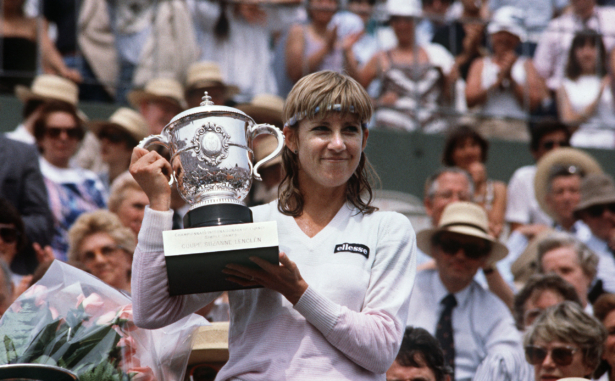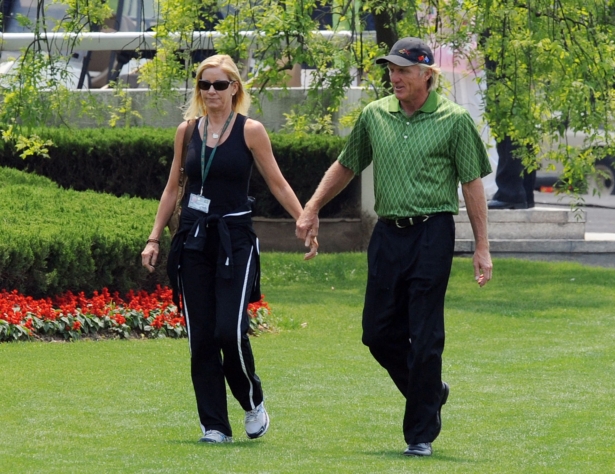Women’s tennis legend Chris Evert has announced she is now cancer-free. The American was diagnosed with ovarian cancer a year ago.
Evert shared in an article on ESPN, where she documented her journey over the past year, revealing that the same BRCA-1 variant of cancer killed her sister two years prior.
“A year ago, I started a journey to protect myself and my loved ones from the risks associated with the BRCA-related ovarian cancer that took my sister Jeanne’s life. Jeanne wasn’t BRCA positive, but genetic testing revealed she had a BRCA-1 variant that was of “uncertain significance.” The doctors didn’t recommend genetic testing for me or my siblings, and we stayed focused on Jeanne’s treatment. The last two years of her life were brutal; they were heartbreaking. In February of 2020, Jeanne died,” she wrote.
Evert says doctors were able to treat the disease as they discovered it in its early stages and were able to track her sister’s genetic road map, effectively treating her to the point that she’s is completely cancer-free. She added that there’s a 90 percent chance the cancer will not return.
Evert, now 68, went on to say that doctors didn’t feel it necessary at the time to also get her or her siblings tested for the disease, but retracted on the decision once they discovered the pathogen’s significance was no longer uncertain.

“Then, last November, I got a call saying they had reclassified her BRCA variant— the significance was no longer uncertain, it was now very clearly pathogenic, and we should be tested,“ she wrote on ESPN.
A simple blood test afterwards confirmed that she was affected by the same variant as her sister.
“I was shocked, I didn’t even know that was possible. I immediately scheduled a preventative hysterectomy. But when my pathology report came back, my doctors and I were stunned to find that I had malignant cells in my left fallopian tube,“ she continued.
Doctors had told Evert that if it had been left undiscovered, within a matter of a few months she would have ended up with Stage 3 ovarian cancer, like her sister. She immediately began six rounds of chemotherapy.
The treatment she underwent may also have stemmed the development of future cancers elsewhere in her body.
“BRCA mutations are associated with an up to 75 percent risk of developing breast cancer, and an increased risk of prostate and pancreatic cancer as well,’” she said.
Following the revelation, Evert took advice from her doctors to undergo a double mastectomy.
“I had two choices: I could monitor my health closely with annual mammograms, MRIs and ultrasounds, or I could have another surgery to lessen my risk. I wanted to get all the facts before I made my decision. After talking to a lot of doctors and sitting with everything my sister went through, I decided I had to do whatever I could to improve my odds,” Evert wrote.
Evert says the decision between monitoring a disease or undergoing surgery is a personal one, but the most important thing is not to leave things to chance. She decided to raise awareness after her experience to inform others of the associated risks.
“Of the 25 million women and men worldwide who have a BRCA mutation, only 10 percent know they are carriers,” she added.

Evert went on to say that her sister was so busy taking care of others that she neglected her own well-being and what her body was trying to tell her.
“My advice is: Trust your gut, know your family history, learn about genetic testing and be your own advocate, she concluded.
According to Evert, she has one more surgery left to undergo. She says that while she’s been told that this is the easy part, her experience over the last few years has not been easy. She added that her sister’s death is something she will never completely heal from but at the same time is grateful for the gift her sister gave her in this process, along with helping others by sharing her journey.

